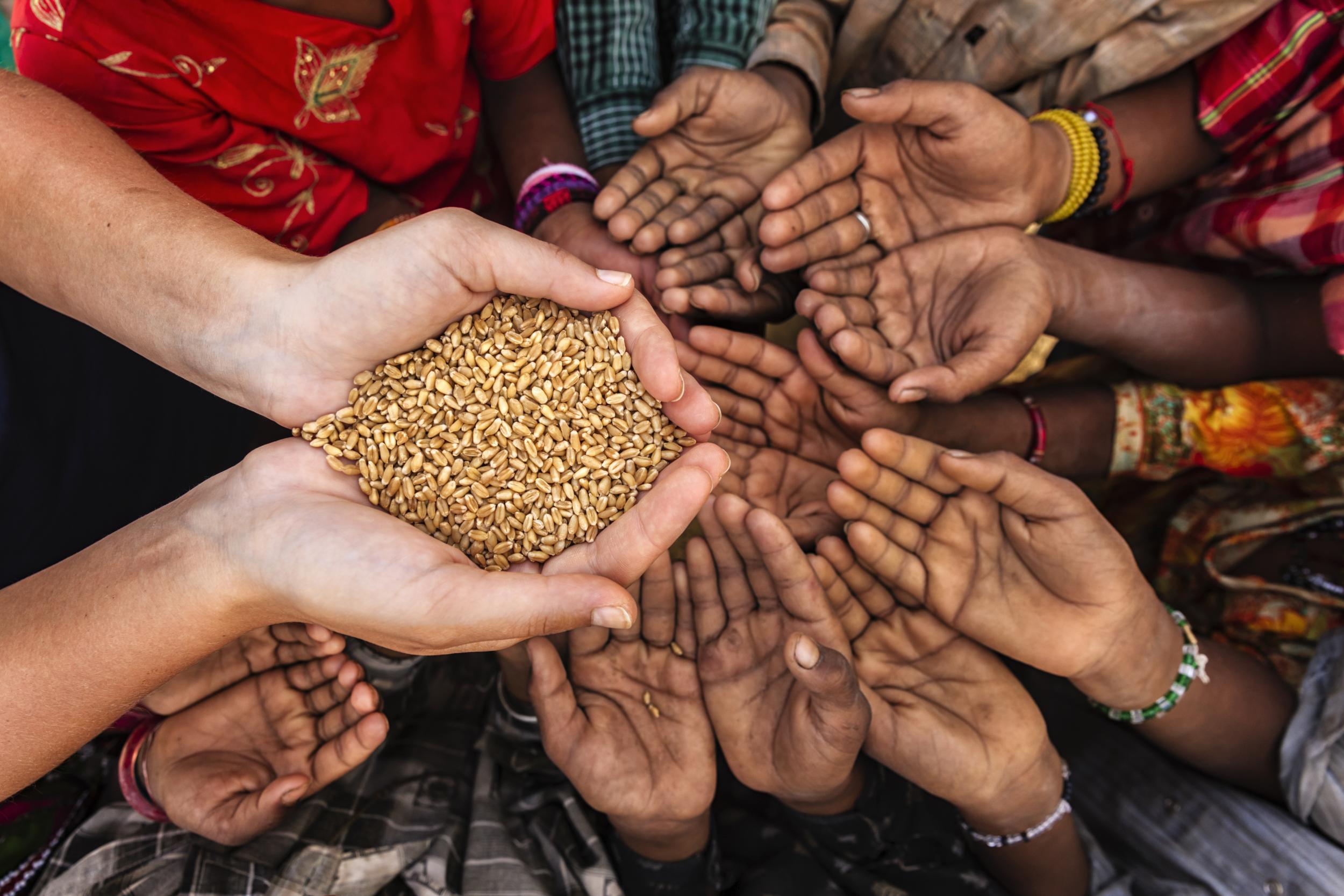Labour urges government to renew child malnutrition commitments as hunger soars
Exclusive: Call comes as Unicef warns that millions more under-5s will suffer lack of nutrition due to Covid-19

Your support helps us to tell the story
From reproductive rights to climate change to Big Tech, The Independent is on the ground when the story is developing. Whether it's investigating the financials of Elon Musk's pro-Trump PAC or producing our latest documentary, 'The A Word', which shines a light on the American women fighting for reproductive rights, we know how important it is to parse out the facts from the messaging.
At such a critical moment in US history, we need reporters on the ground. Your donation allows us to keep sending journalists to speak to both sides of the story.
The Independent is trusted by Americans across the entire political spectrum. And unlike many other quality news outlets, we choose not to lock Americans out of our reporting and analysis with paywalls. We believe quality journalism should be available to everyone, paid for by those who can afford it.
Your support makes all the difference.Labour is calling on the government to renew financial commitments to tackle child malnutrition, amid fears that hunger is soaring not only in the developing world but also in Britain.
The party released analysis of NHS figures showing that children admitted to hospital in England with malnutrition have risen steadily from just over 300 at the start of the decade to top 500 in 2017 and 2018. And they warned that the problem has almost certainly got worse during the coronavirus lockdown.
With Unicef warning that the Covid-19 pandemic could lead to an additional 6.7 million under-5s becoming dangerously under-nourished in 2020, there are concerns over the future funding of projects to tackle hunger.
UK commitments of spending totalling £855 million made at the Nutrition for Growth summit in London in 2013 - which raised £15bn from countries around the globe - are due to expire at the end of this year.
New pledges of cash were expected at the follow-up summit, scheduled for Tokyo in December.
But this has been postponed to the end of 2021 because of the pandemic, leaving a potential gap in funding, said Labour international development spokesman Ray Collins.
He urged Boris Johnson’s government not to wait until the pledging conference in 16 months’ time to commit new funds to help keep children fed.
“Across the world, there are few factors which determine a child’s life more than their access to nutrition,” said Lord Collins.
“Without proper sustenance, many will never reach adulthood.
“By tackling under-nutrition, we can also overcome the myriad of issues which occur as a consequence. Nutrition interventions, for example, lift people out of poverty and increase the capacity of health systems - two vital elements of pandemic preparedness.
“The UK has a responsibility to make nutrition a priority of global development; not least because of our commitment to the UN Global Goals but because in 2020, children both in the UK and overseas should not be experiencing malnutrition.”
Lord Collins’s call came just days ahead of the merger of the UK’s Department for International Development with the Foreign and Commonwealth Office, which aid charities fear may lead to a diminished focus on the world’s poorest.
The Labour peer said child hunger was not only an issue for the developing world.
He said that numbers of children suffering malnutrition in England had “sky-rocketed” over the past decade. And he said there were worries that more will have gone hungry since Covid-19 hit the UK, in part because those who became eligible for free school meals over the summer holidays were not able to access food vouchers.
A government spokesperson said: “We want all children to have a happy, healthy start in life and are committed to providing a nutritional safety net to those who need it the most.
“Our healthy food schemes - Healthy Start, Nursery Milk, and the School Fruit and Vegetable Scheme – help more than three million children receive the nutrition they need.
“In response to this unprecedented pandemic, we have also put in place a range of government support for families needing additional or new support this summer.”
The spokesperson pointed to the UK' s pledge to end the preventable deaths of mothers, new-born babies and children by 2030, which is set to be a priority for UK aid in the new Foreign, Commonwealth and Development Office.
From April 2015 to March 2020, DFID reached 55.1 million children, adolescent girls and women with nutrition services in 25 countries, including Bangladesh, Somalia, Myanmar, Ethiopia and Yemen, and the department said it had protected malnutrition services in the immediate coronavirus response.
Join our commenting forum
Join thought-provoking conversations, follow other Independent readers and see their replies
Comments